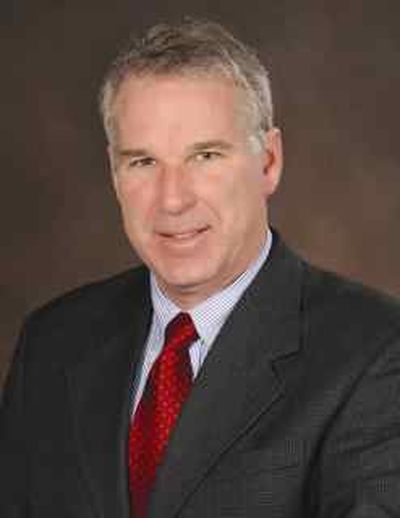Hart paid lawyer with campaign funds

BOISE – Idaho state Rep. Phil Hart paid $1,000 in campaign funds in 2011 to Coeur d’Alene attorney Starr Kelso, who’s representing him in his ongoing fight against back state income taxes; Hart lost his tax appeal to the Idaho Supreme Court last week. But Hart said the payment was for helping him defend against a series of House ethics complaints.
The fourth-term lawmaker faced ethics complaints over his tax fight and an illegal state timber harvest; Kelso represented Hart at two House Ethics Committee hearings in Boise in 2010 and submitted documents on his behalf.
Idaho Secretary of State Ben Ysursa said, “There’s nothing prohibiting that.” Campaign funds can be used for anything “related to being a holder of public office,” he said.
And while Idaho state law doesn’t specifically mention the use of campaign funds for legal defense, Ysursa said, “We look to the feds for some guidance, and they have in the past indicated that legal defense fund use of campaign funds was OK.”
He noted a prominent precedent among Idaho politicians: Then-U.S. Sen. Larry Craig tapped his campaign funds for more than a quarter-million dollars after his arrest in a Minneapolis airport restroom sex sting in 2007, including $23,000 for an attorney to represent him in a Senate ethics investigation. The ethics committee admonished him, in part, for spending campaign funds on both legal and public relations fees after the arrest without first seeking its approval.
Hart said he checked on the rules before paying his attorney with campaign funds. “If you read the regulations, it’s anything that kind of falls in line with your work as a legislator is a legitimate expenditure,” he said.
Idaho law prohibits campaign funds from being “converted to personal use,” which is defined as expenses that would exist “irrespective” of being a candidate or public office holder. Examples range from mortgage payments to country club dues.
Ysursa noted that the law was strengthened in 2006, after questions arose over former Gov. Dirk Kempthorne’s use of campaign funds for items like haircuts and meals.
Hart faced three ethics complaints in 2010 and 2011; as a result, he lost his seat on the House tax committee and gave up his vice-chairmanship of the transportation committee. He also apologized to the House for his actions.
The payment to Kelso was 40 percent of Hart’s campaign spending in 2011, according to his most recent campaign finance report, which covers the period from Jan. 1 to Dec. 31, 2011. He said he didn’t have much campaign activity because it wasn’t an election year; this year, by contrast, every seat in the Idaho Legislature, including Hart’s, is up for a vote.
The next set of campaign finance reports comes out May 8, just a week before Idaho’s May 15 primary election; that’s the public’s only chance to see how candidates are financing their runs before the primary vote.
Hart said, “I think Starr is a great attorney and a good man, and I’m really pleased to have been able to work with him.”
He also said that collaboration may continue; Hart is vowing to continue to fight a state order to pay more than $53,000 in back state income taxes, penalties and interest, even though he’s already lost five appeals, including the latest to the state’s highest court. “We’re going to meet in the next week or so and at least talk about it,” he said.
Hart’s key argument in his latest appeal was that the Idaho Constitution’s legislative privilege clause should have allowed him to file his appeal months after the expiration of a 91-day appeal period, because a legislative session followed the appeal period. The court rejected that, saying he has “no greater privilege than his constituents.”
Hart also is the target of a federal lawsuit from the U.S. Justice Department seeking to foreclose on his Athol, Idaho home for $550,000 in back federal income taxes, penalties and interest; that case is scheduled to go to trial Nov. 6, 2012 – Election Day.
Not only did Hart lose his state appeal, the high court ordered him to pay the state’s costs and attorney fees, which still are being calculated. Hart said, “It’s highly unusual that they would do that,” saying, “There’s never been a court case in the history of Idaho that dealt with that section of the Idaho state Constitution.”
Hart also cited the legislative privilege clause in fighting the federal tax case, but last month a federal judge rejected that defense.
A tax protester who stopped filing state and federal income tax returns for three years in 1996 while he pressed an unsuccessful lawsuit arguing that the federal income tax is unconstitutional, Hart began filing returns again after the lawsuit failed and maintains he has paid all the taxes he owes, but both federal and state authorities say he still hasn’t fully paid up.